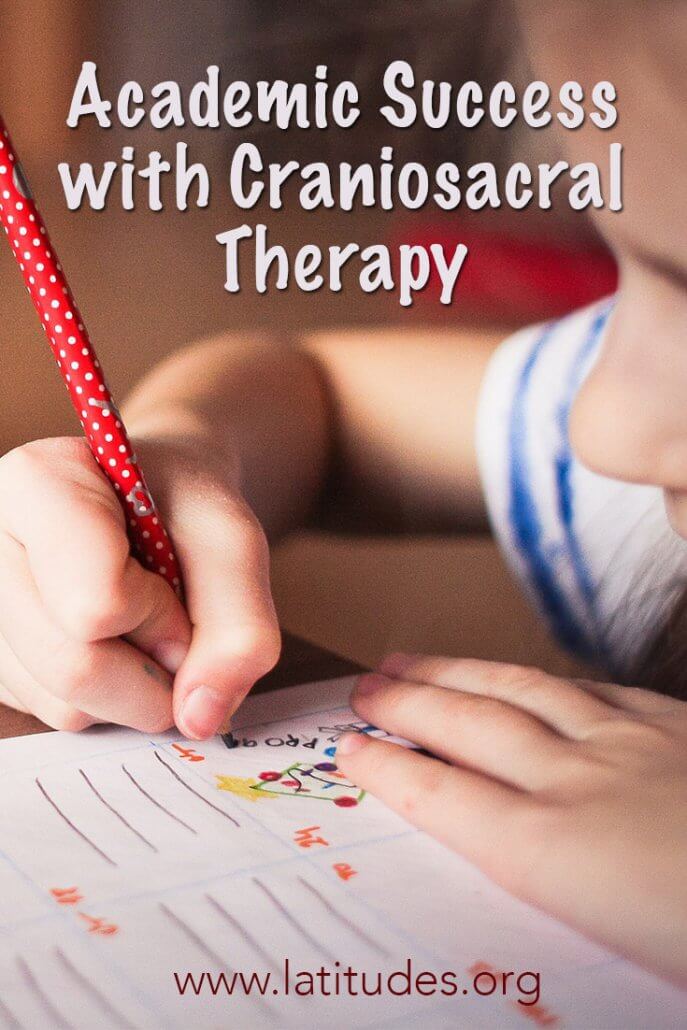Academic Success with Craniosacral Therapy
 This case report and review of psychoeducational records was completed by ACN Latitudes director, Sheila Rogers, a nationally certified school psychologist.
This case report and review of psychoeducational records was completed by ACN Latitudes director, Sheila Rogers, a nationally certified school psychologist.
Penny Dunker’s high school guidance department nominated the senior for a feature article in the Hartford Courant titled “Triumph over Learning Disability.” According to her family, CranioSacral treatment was responsible for the breakthrough that led to the article. Mrs. Dunker explained that labor for Penny’s birth had been very difficult, and after more than 31 hours she underwent a Cesarean section. Developmental milestones were normal. Inhalant allergies appeared and were treated, as needed, with antihistamine medication. Other medical history was unremarkable. Once school started, it was not long before teachers began to contact the parents: Penny was not paying attention in class, she was not completing work, she was sometimes uncooperative, and she was showing signs of frustration. Penny was tested at age 8 and scored in the high average range (Full Scale I.Q. 115) on the Wechsler Intelligence Scale for Children -Revised. Her verbal skills were moderately stronger than her nonverbal skills. An additional evaluation indicated a deficit in fine-motor coordination along with poor math skills. The area in which Penny’s family saw the greatest difficulty, written language, was not assessed.
A clinical psychologist diagnosed an attention deficit disorder. Ritalin was initiated but was discontinued after three months due to lack of effectiveness. Penny received outside counseling for several months to address self-esteem issues. She also received part-time services through the Exceptional Student Education program for several years. Professionals could not agree on her primary problem. When Penny began high school, she wanted to be out of special education and opted for all regular classes. Despite her above-average intellect, academics continued to be difficult; she failed two subjects and was in danger of repeating the year. At this point, Mrs. Dunker learned that CranioSacral treatment had been successful for some people with learning difficulties. “I felt it was at least worth a try. My biggest concern was that she would graduate from high school and find a self-supporting job — any job.” Penny began treatment with Dr. Sharon Weiselfish and within the first few weeks the family saw some changes. Initially, they observed an intensification of frustration and emotion, then an apparent 11 release” and new focus.
After about eight weeks of therapy (twice weekly), Penny gradually began to improve in her studies. “I was able to concentrate for the first time — I couldn’t believe it. Everything used to be so hard for me, such a struggle. My writing skills eventually got much better, too. My honor-roll grades speak for themselves.” Penny received CranioSacral and related therapy over a two-year period, at progressively less frequent intervals. Her treatment was so successful that Penny attended college and worked part-time in Dr. Weiselfish’s office.
For more information on cranial therapy









